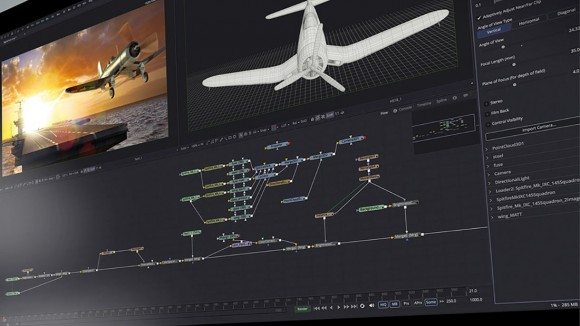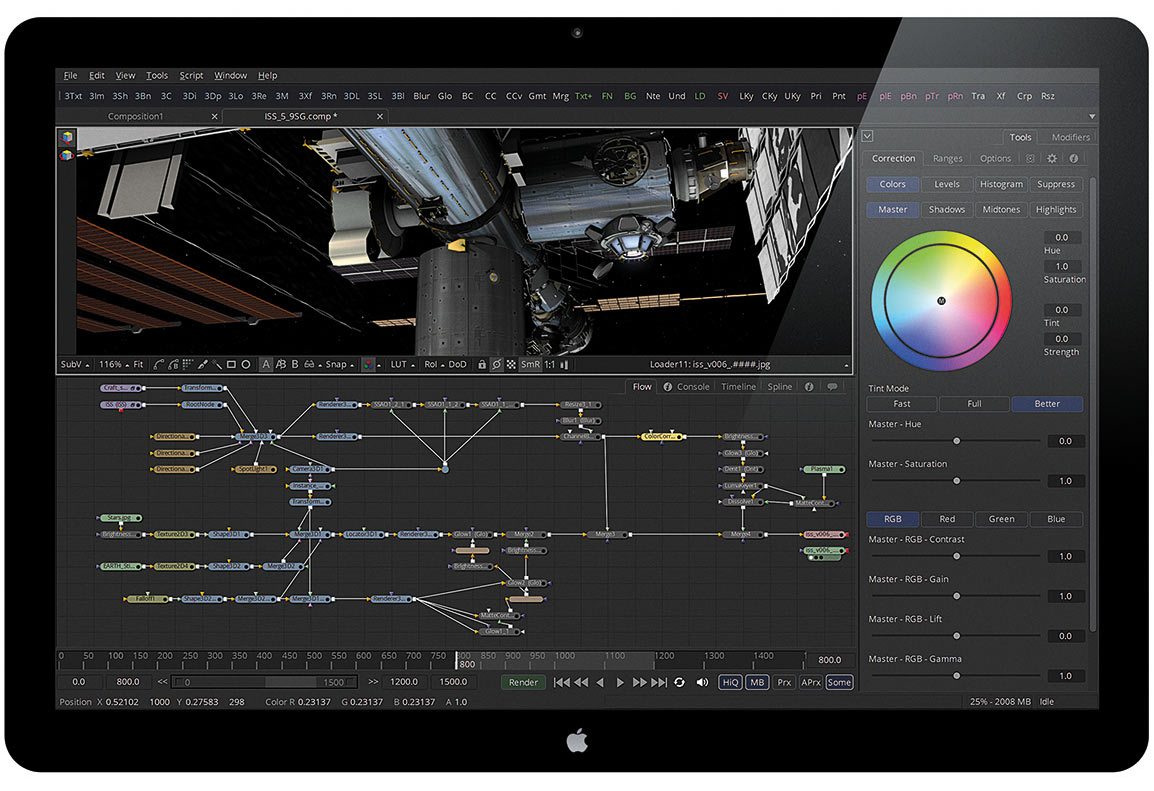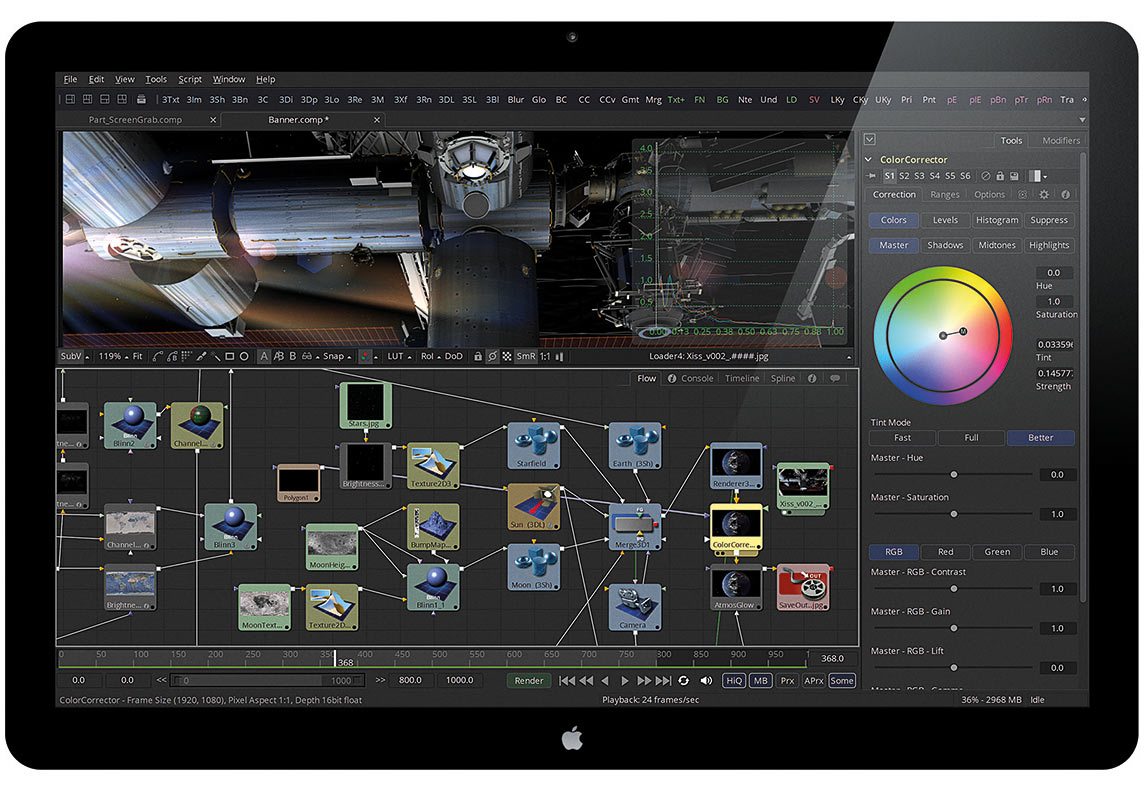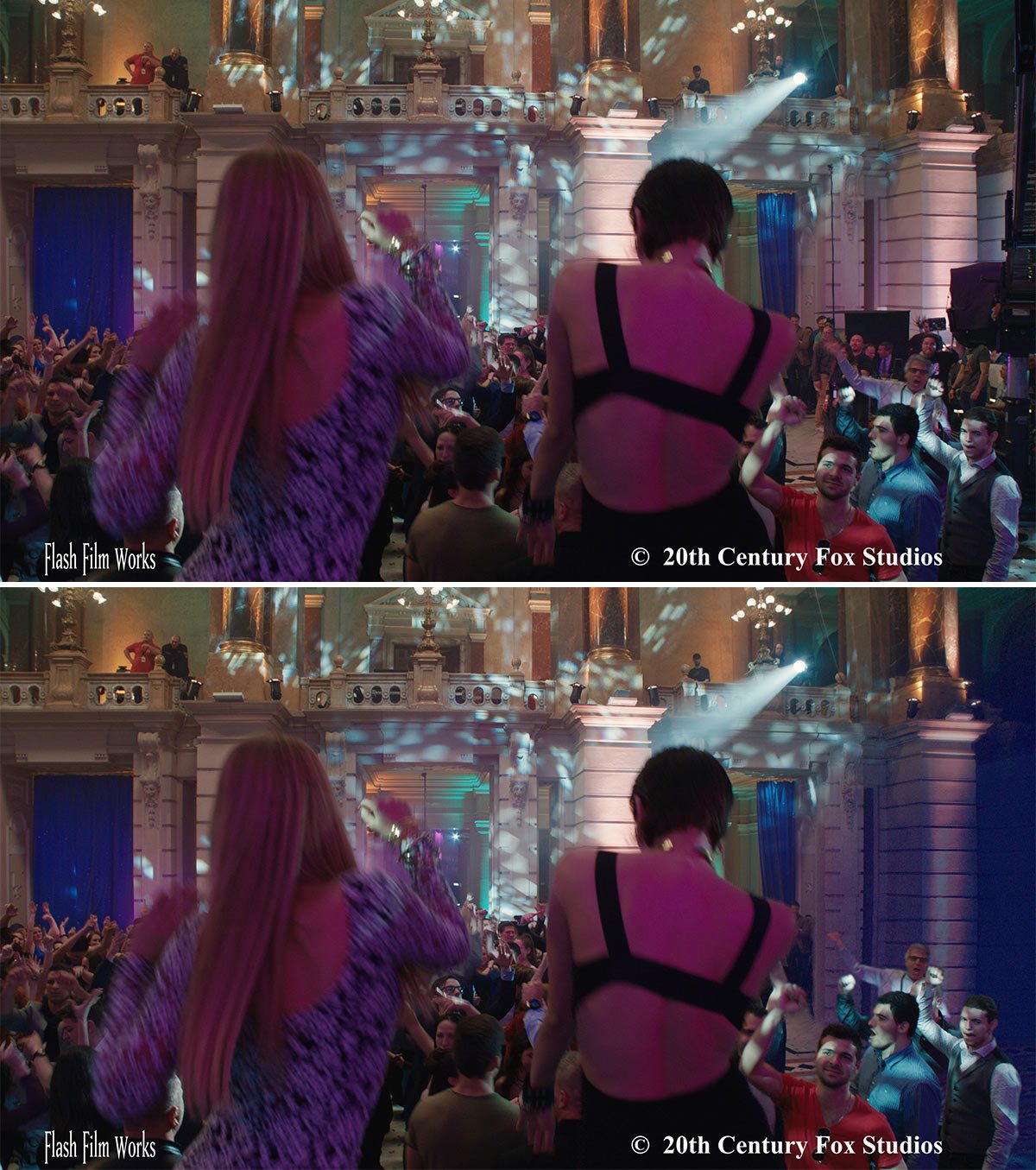

Fusion Compositing Software Is Now Free And Available On Macs
It’s no secret that in the world of visual effects compositing, The Foundry’s Nuke has led the pack in recent years. Both large studios and smaller facilities have adopted the popular node-based compositor in droves. However, other compositing tools like Autodesk’s Flame, Adobe’s After Effects, and even the one-time industry standard Shake still have their dedicated users.
Another of those tools with a dedicated fan-base is Fusion, once called ‘Digital Fusion’ and made by Eyeon Software but last year purchased by Blackmagic Design.
Fusion has actually been around for more than 20 years, and users who haven’t shifted to Nuke — or who did but came back to Fusion — swear by this compositing alternative. And now Blackmagic, known for its impressive array of color grading tools and digital film cameras, may just be starting (only just) to chip away at The Foundry’s stranglehold: they’ve made Fusion free and available on Mac OS X.
Well, mostly free.
The fully functioning Fusion 8 is ready to download right now for Windows and Mac OS X, for no cost. That’s certainly incredible considering the software once costs thousands of dollars to buy. Fusion 8 can also be used for any purpose (The Foundry offers a free version of Nuke, too, but it’s strictly for non-commerical use).

A more advanced version of Blackmagic’s software, Fusion 8 Studio, retails for US$995 and includes capabilities for optical flow image analysis for stereoscopic work, support for third-party OpenFX plugins, and unlimited distributed network rendering, among other extras. If you want to deploy Fusion 8 Studio to a multi-seat facility, then of course there are multi-user licenses available at progressively cheaper prices.
So why is there a free version of Fusion 8? “To give people the ability to try Fusion and realize that they can and should be working with vfx,” Dan May, president, Blackmagic Design, told Cartoon Brew. “It breaks down barriers for vfx artists that might not have been able to afford an advanced solution before. By combining it with DaVinci Resolve 12, which is also free, independent artists can edit, grade, 3D composite, and create visual effects, all for free.”
To be clear, Fusion in all its previous incarnations has already enjoyed a considerable presence in visual effects production over the years. Blackmagic tells us that it has been used by various vfx studios on such recent films as London Has Fallen, Mockingjay Part 2, The Martian, Ant-Man, Spy and Kingsman: The Secret Service.. “It is already a product that vfx artists are familiar with and are comfortable with,” said May. “And now, with Fusion 8 for Mac and adding Linux next, we are opening up Fusion to work across any workflow.”

Part of the present appeal with Fusion, too, must surely be the Blackmagic ‘eco-system,’ which includes DaVinci Resolve for color grading. “Fusion and DaVinci Resolve being available for free adds to the comfort level,” said May, “as it allows customers to download the software and try it out before deciding to use it or purchase the Studio version. When you’re going to be using editing, grading or vfx software day in and out on a project, you want to make sure it’s the right software for you.”
OK. We get it. It’s free. You can try Fusion out. You can use almost all of its full potential. You can integrate it nicely with other Blackmagic software. What else is there to know?
May reckons Blackmagic’s Fusion clients rave about the speed of the software, in particular. “We often hear speed being touted as one of our customers’ favorite things about Fusion. Its speed allows them to complete projects in much less time than it would have taken otherwise. Users also really like how it’s node-based. Unlike timeline-based applications, Fusion’s node-based architecture makes it quick and easy to see and adjust individual parts of the project.”
What do real-world users think of Fusion? We asked one them, Flash Film Works (FFW), which completed visual effects for the Paul Feig film, Spy. “I like the 3D environment,” commented FFW compositing supervisor Jeremy Nelson, a Fusion user for the past 16 years. “It is very intuitive. I also love the Grid Warp function, and being able to connect it with the tracker and other modifiers; I could go on and on.”

“It is my go-to for just about every shot,” added Nelson. “It is easy to work with. Fusion is the core of my work flow, everything fits with it. It plays well with other software, which is extremely helpful.”
And that seems to be Blackmagic Design’s play: make Fusion a key part of its own suite of vfx/finishing software as well as a larger part of a studio’s toolset. And make it incredibly accessible — with Fusion now an easier prospect to get into the hands of always eager visual effects artists, we may well be seeing a slight change to the compositing landscape in the near future.
